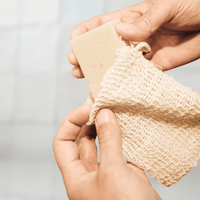
When it comes to being environmentally conscious, laundry and dishes are chores you may want to reevaluate. Washing dishes require excessive use of water and soap that may contain harsh ingredients. However, there are changes you can make to save water, reduce your environmental impact and feel better about how you wash your dishes. From waiting to run the dishwasher to using solid dish soap, learn more about what you can do.
Use a Dishwasher
Studies have proven that a dishwasher uses much less water than hand washing. According to ENERGY STAR, dishwashers could end up saving more than 3,870 water gallons per year. You can save higher if you choose an energy-saving dishwasher model.
Run the Dishwasher Only When Full and Choose Eco-Settings
When possible, don’t run your dishwasher until it’s completely full. Don’t overfill it because your dishes may not come completely clean. But try not to turn the dishwasher on if it’s only half full because you could end up wasting water and soap.
In addition to ensuring your dishwasher is full, be conscious of what settings you’re using. Heated dry, pre-rinse, and high-temperature wash settings can increase your water and energy usage, as well as your water and energy bills. Opt for air drying, wash plates lightly on a low-temperature setting and skip the pre-rinse. Some dishwashers have eco-friendly settings on them, so you can get peace of mind with the press of a button.
Scrape Plates Before Cleaning
Scraping grease, food and other debris from your silverware and plates prior to loading the dishwasher can have a positive impact. Scraped plates allow you to utilize those eco-friendly settings on your dishwasher without compromising cleanliness. This applies to hand-washing too. If the plates are cleaner when they get tossed into the sink, that’s less soap, scrubbing and rinsing.
Wash Dishes Right After Use
Hard, caked-on foods and sauces can be hard to scrub. Try washing your dishes right after your meal, so the residue is soft and easier to get off. This will help you save soap, water, time and effort. You can also combine this technique with a good dish scrubber or wooden dish brush. A high-quality scrub brush will work hard to remove any unwanted materials from your dishes without the added elbow grease.
Shop Intentionally for a Dish ScrubberConsider a Sink Bath
Even though dishwashers are the preferred environmentally friendly option for washing dishes, not everyone has a dishwasher. If you’re someone who hand-washes dishes, consider using a sink bath. A sink bath is when you block the sink’s drain and fill it up with warm, sudsy water. A small amount of dish soap is all you need to create a soapy bath to soak your dishes. Scrub as needed, then rinse them in hot water to remove any leftover bacteria before letting them air dry.
Scrub All Dishes, Then Rinse
When learning more about the most eco-friendly way to wash dishes, another technique you can try is scrubbing everything before moving on to rinsing. In other words, scrub all of your plates, cups, knives and other items with the water turned off. Then, turn the water on and rinse everything at once. That way, you’re not letting the water run while trying to scrub off last night’s dinner.
Don’t Leave the Water Running
As a whole, you should avoid leaving the sink water running when you’re not using it. This is a tip you can use across the board when brushing your teeth, preparing dinner, washing hands and doing other activities at the sink. Only run the water when you’re filling the sink, rinsing your dishes or creating a soapy lather to avoid using more than necessary.
Use Eco-Friendly Dish Soap
Many dish soaps contain harsh chemicals (and plastics, in some cases) that can hurt the environment. Not to mention, you may not want to use soaps that contain chemicals on the items you use to eat and drink.
Consider using an eco-friendly soap, such as solid dish soap. For example, The Earthling Co.'s solid dish soap is non-toxic, free of plastic and comes in an eco-conscious tin. Plus, it can last you as long as 2-3 bottles of standard dish soap to save you money, avoid toxins and eliminate the use of plastic bottles.
Explore Sustainable Kitchen ProductsFinal Thoughts
Reevaluating your dishwashing habits is a great way to reflect on your environmental impact. Integrating techniques like scraping your plates, waiting to run the dishwasher and using sustainable kitchen products to reduce waste, saves water and decreases emissions. In addition to caring for the planet and offering you peace of mind, you can also save money and create a safer, healthier home.







